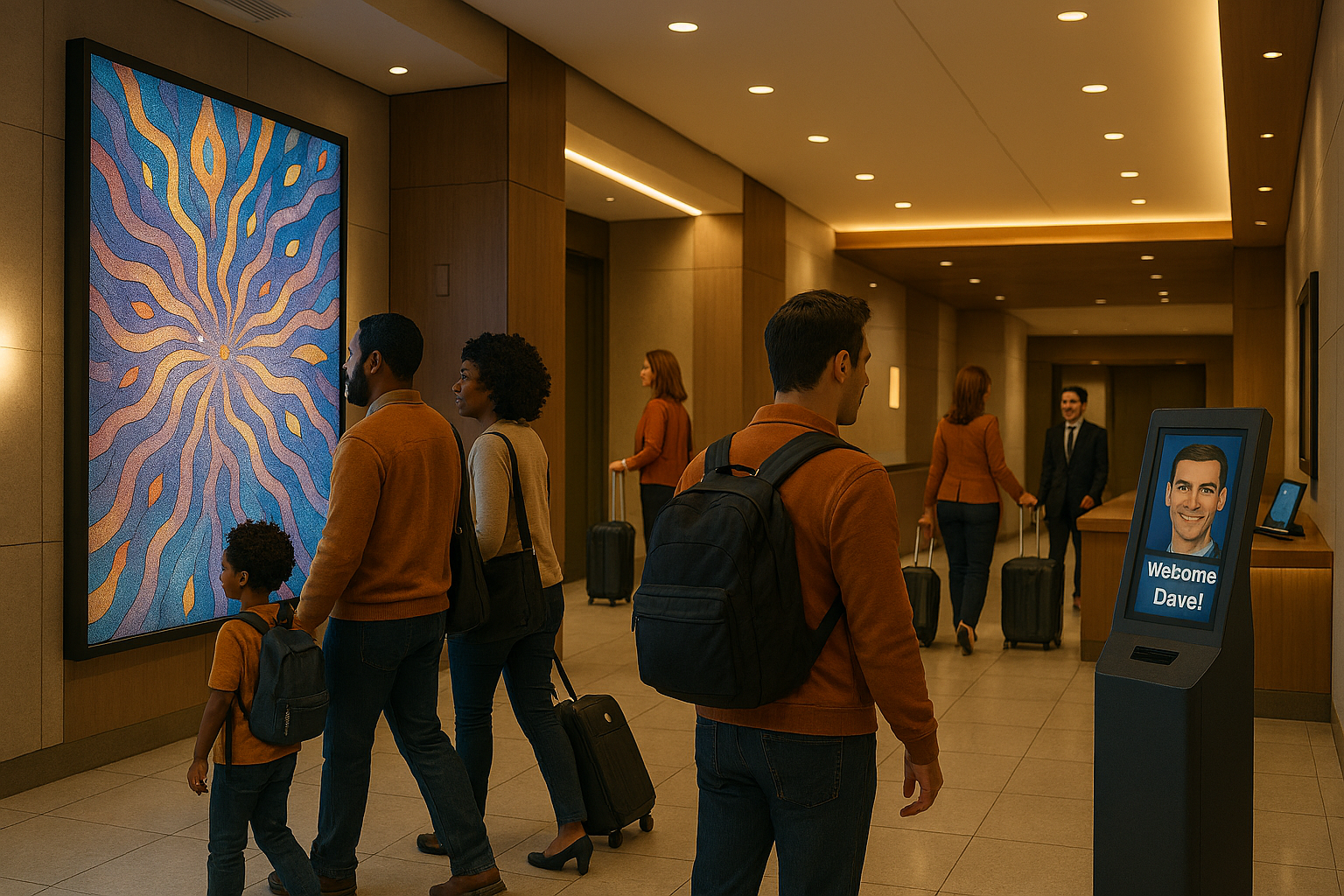AI meets AV: Reimagining the experience economy in corporate, hospitality and hotels

In the corporate world, the traditional meeting room is evolving into a dynamic collaboration hub. AI-enhanced AV systems now anticipate user needs – automatically adjusting lighting, acoustics, and display configurations based on the meeting type, participants, or even the agenda. Companies like Google and Deloitte are already experimenting with AI-driven workplace design, where sensors and machine learning optimise space usage, reduce energy consumption, and enhance employee wellbeing. The boardroom becomes a responsive environment that supports focus, creativity, and connection.
When it comes to the hospitality sector, the guest journey is being completely redefined, with hotels becoming platforms for personalised experiences. For example, at the Mandarin Oriental in Las Vegas, AI is used to analyse guest preferences and tailor everything from room temperature to entertainment options. In-room voice assistants, powered by natural language processing, allow guests to control AV systems, order room service, or request local recommendations – all without lifting a finger.
AV technology plays a starring role in this transformation of the hospitality space. Projection mapping, interactive displays, and spatial audio are being used to craft immersive brand stories in lobbies, lounges, and event spaces.
In hotels and corporate venues alike, AI is also becoming a silent partner in operations. Predictive maintenance, powered by machine learning, ensures AV systems are always performing at their best. Data from sensors and usage patterns inform staffing, layout changes, and even menu design. The result? Environments that are smarter, more sustainable and more efficient.
As AI and AV continue to evolve, the environments we inhabit will become more responsive, more immersive, and more intelligent. From boardrooms that configure themselves to hotel rooms that anticipate your needs, the fusion of these technologies is going beyond enhancing experiences – it’s redefining them.
As we look ahead, the fusion of AI and AV is poised to become the backbone of the experience economy. Creating spaces that listen, learn, and respond. Spaces that feel alive.
The question is no longer if AI and AV will transform our environments, but how far we’re willing to go in building in intelligence to deliver unforgettable experiences.
More examples
At Samsung’s Human Resources Development Institute, AV networks powered by NETGEAR Pro AV solutions have transformed training environments with seamless Dante AV integration and centralised control. This allows for flexible, immersive learning experiences tailored to each session.
Wipro’s Innovation Network Experience Centre in Bangalore showcases how AI, IoT, and AV tech can converge to create immersive zones for co-innovation. The centre supports industries from healthcare to aerospace, using live prototypes and interactive AV to foster collaboration and ideation.
At Hilton, the AI-powered concierge ‘Connie’, built on IBM Watson, provides guests with tailored recommendations and local insight. Similarly, The Cosmopolitan in Las Vegas uses an AI chatbot named Rose to handle everything from restaurant bookings to quirky city tips via text.
Marriott International has trialled in-room AI assistants that allow guests to control lighting, temperature, and entertainment systems through voice commands – creating a personalised environment from the moment they arrive.
AV technology is becoming a key differentiator in hotel design. The W Hotel in Barcelona uses large-scale digital canvases to showcase local art and culture, creating a sense of place that evolves throughout the day. These visually impressive, emotionally resonant experiences are powered by AI algorithms that adapt content in real time based on audience engagement.
In the luxury segment, Boom, an AI-powered property management system, is helping hotels automate everything from revenue forecasting to guest communication. Developed by DesignedVR founder Shahar Goldboim, Boom enables hotels to deliver personalised upsells, automate accounting, and optimise energy usage based on real-time data. Rooms can be prepared based on flight arrival times, lighting and temperature adjusted automatically, and performance benchmarked against competitors – all while preserving brand tone and guest intimacy through AI-driven communication.
Stay informed!
ISE 2026 takes place in Barcelona on 3-6 February 2026. For more updates on AI and other industry megatrends, and to discover more about ISE 2026 as details are released, sign up for updates.
Don't miss out – join our community today and keep up to speed with all the latest industry trends.

)
)
)
)
)
)
)
)
)
)
)
)

)
)
)
)
)
)
)
)
)
)
)
)
)
)
)
![rAVe [PUBS]](https://cdn.asp.events/CLIENT_Integrat_169E7B04_E6F3_39F6_8BE4DB27C54F731E/sites/ise-2026/media/libraries/partners/rAVe-PUBS-Google-Logo.png/fit-in/500x500/filters:no_upscale())
)
)

)
)
)
)
)
)
)
)
)
)
)
)
)
)
)
)
)
)
)
)
)
)
)
)
)
)
)
)
)
)

)
)
)
)
)
)
)
.png/fit-in/500x500/filters:no_upscale())
)
)
)
)